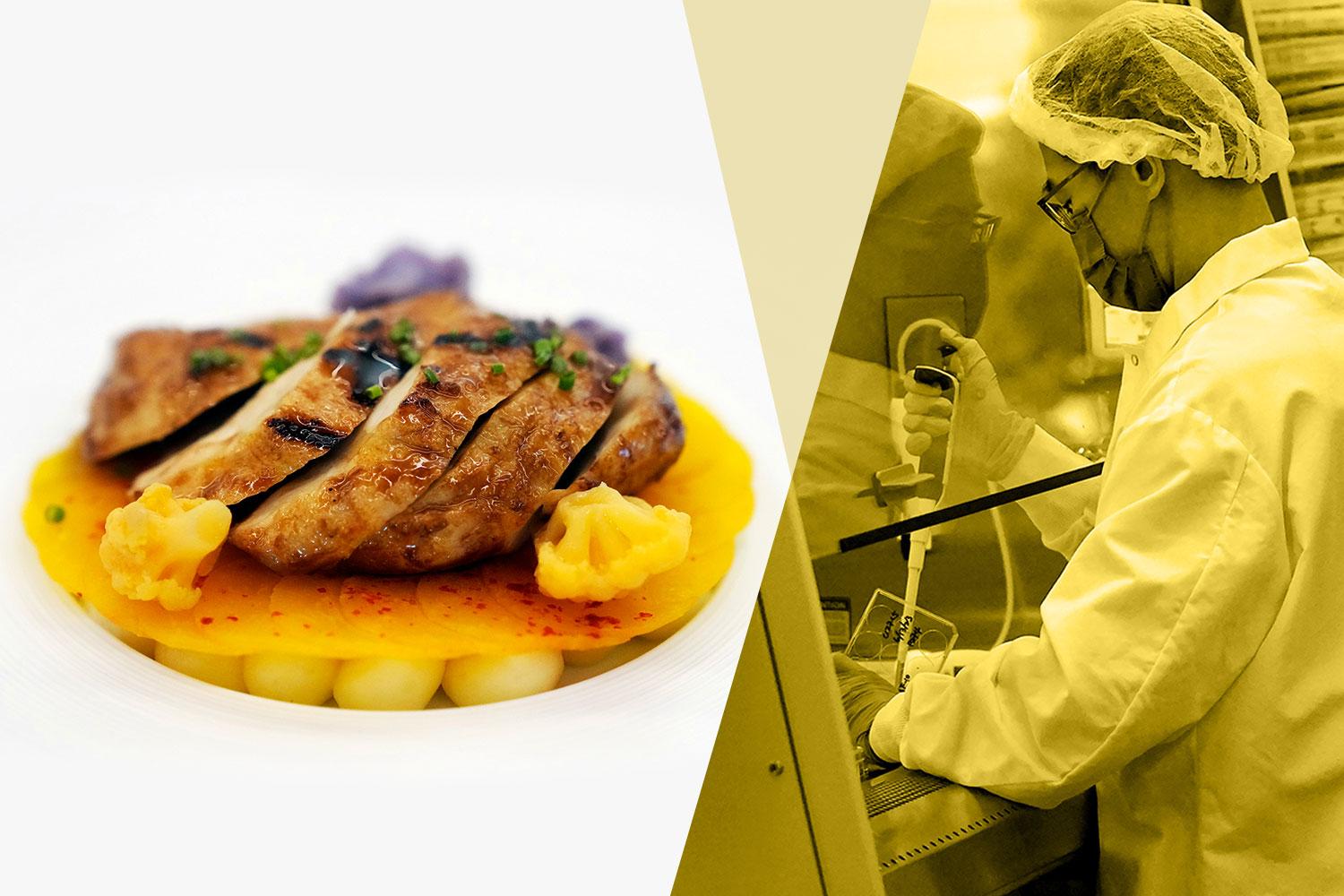This article is tailored for individuals interested in the future of sustainable and ethical meat consumption. It explores the emergence of cell-cultivated meat, specifically lab-grown chicken, in the United States. The article delves into the implications for animal welfare, environmental conservation, and public health. Dr. Michael Greger’s expertise in plant-based nutrition provides a lens to analyze this transformative shift in our approach to meat consumption.
Introduction:
In a world grappling with the environmental toll and ethical concerns of conventional meat production, a revolutionary solution is on the horizon—one that promises to transform the very essence of meat consumption. Lab-grown meat, an innovation rooted in scientific ingenuity, is poised to rewrite the narrative of our relationship with animal products. This article ventures into the emergence of lab-grown chicken in the United States, unraveling its implications for animal welfare, environmental sustainability, and public health. With the insightful perspective of Dr. Michael Greger, a renowned advocate of plant-based nutrition, we navigate this bold step toward a more humane and conscientious future of meat consumption.
The Genesis of Lab-Grown Meat: Pioneering a Sustainable Solution
In the heart of laboratories, a pioneering approach to meat production is underway. Lab-grown meat, also known as cultivated or cell-based meat, involves growing animal cells in a controlled environment to create a product that mimics conventional meat without the need for large-scale animal farming. This technology, originally cultivated for medical research, has evolved into a potential solution for the ethical and environmental quandaries posed by conventional meat production. Scientists are perfecting techniques to replicate the taste, texture, and nutritional profile of meat while reducing the resource-intensive processes of livestock farming.
A Paradigm Shift for Animal Welfare and Ethical Consumption
The birth of lab-grown chicken heralds a new era for animal welfare. Unlike the conditions of traditional factory farming, where animals endure cramped spaces and inhumane treatment, lab-grown meat is produced through cell cultivation, rendering the need for raising and slaughtering animals obsolete. As consumers increasingly seek ethically sourced and cruelty-free products, lab-grown chicken emerges as a beacon of compassion, offering a way to satisfy dietary preferences while championing the well-being of sentient beings.

Nourishing the Planet: Environmental Sustainability at the Core
The environmental implications of conventional meat production are well-documented—deforestation, excessive water consumption, and greenhouse gas emissions. Lab-grown chicken presents a compelling solution to these challenges. By significantly reducing land usage, water consumption, and emissions, lab-grown meat has the potential to alleviate the strain on our planet’s resources. The cultivation process can be fine-tuned to minimize ecological impact, offering a more sustainable path forward for feeding a growing global population.
Dr. Michael Greger’s Perspective: Health and Nutritional Insights
Dr. Michael Greger’s pioneering work in advocating for a plant-based diet brings a unique lens to the lab-grown meat conversation. He notes that lab-grown chicken, devoid of antibiotics, hormones, and potential contaminants found in conventionally raised poultry, offers a promising avenue for public health. With an emphasis on the nutritional superiority of plant-based diets, Dr. Greger provides insights into how lab-grown meat aligns with health-conscious choices, potentially offering a safer and more nutritious protein source.
Conclusion:
As the curtain rises on the era of lab-grown chicken, we stand on the precipice of a transformative shift in our dietary landscape. Lab-grown meat represents an extraordinary convergence of scientific innovation, ethical considerations, and environmental stewardship. With the guidance of experts like Dr. Michael Greger, we peer into a future where our choices resonate with our values—values of compassion for animals, reverence for our planet, and a commitment to nourishing our bodies in ways that honor both our well-being and the world we inhabit.
As lab-grown chicken takes its inaugural steps into the realm of dining, it symbolizes a profound evolution—a reminder that the boundaries of what we consider food are fluid and open to change. This evolution beckons us to reflect on the power of human ingenuity, our capacity for ethical advancement, and the potential to rewrite the story of how we nourish ourselves. As we embrace the dawn of cell-cultivated cuisine, may we do so with gratitude for the transformative potential it holds—one that promises not only to reshape our plates but also to reshape the very fabric of how we coexist with the world around us.










